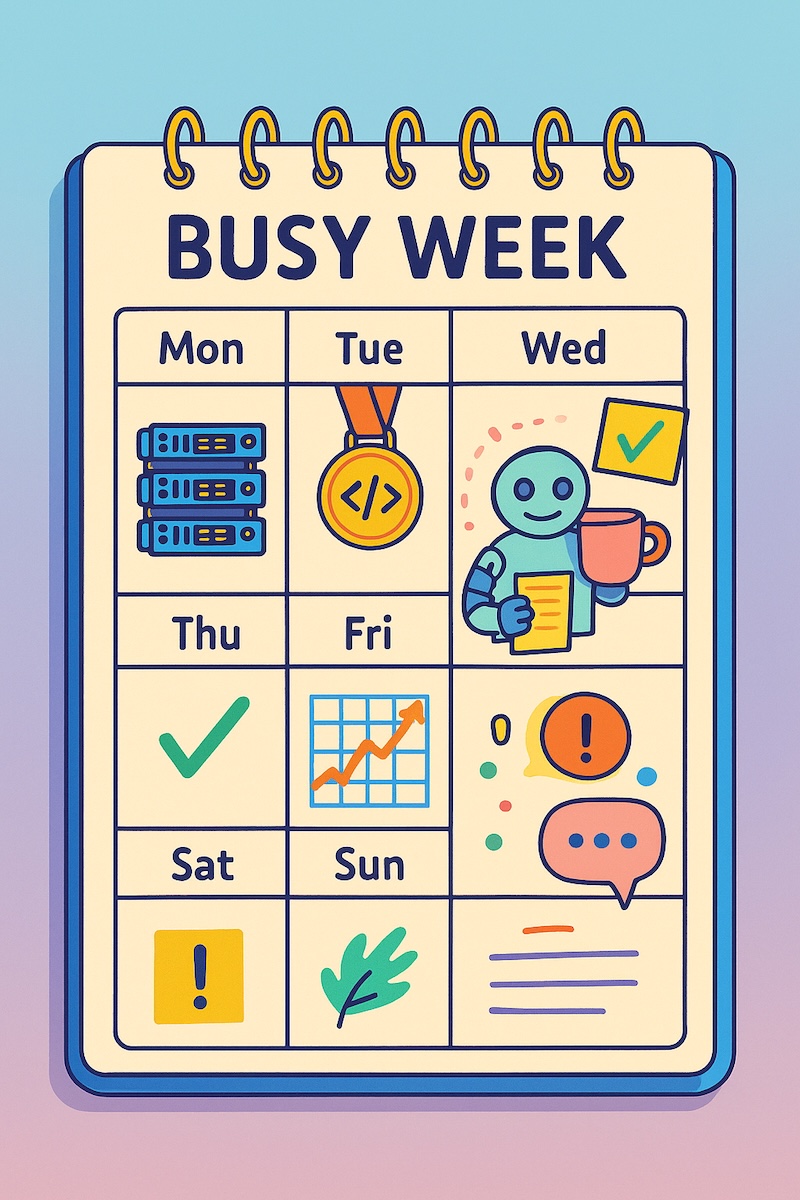Introduction
Some weeks in AI feel like new toys; this one feels like moving house. We’re talking national AI fortresses, coding champions, memory upgrades, and assistants that finally remember what you said last Tuesday. Additionally, the EPA decided to act quickly for once. (Yes, you read that right.)
The most Prominent AI Achievements This Week
1. OpenAI’s Stargate UK: Sovereign AI Gets Real
Source: OpenAI
Britain just got serious about keeping its AI at home. OpenAI, NVIDIA, and Nscale are building Stargate UK — think of it as Britain’s own AI fortress where sensitive models can train and run without crossing borders. Starting with 8,000 GPUs in 2026 and scaling to 31,000, this isn’t just about shiny hardware. It’s about making sure your healthcare data, financial models, and defence systems stay precisely where you want them — on British soil, under British rules.
When AI gets powerful enough to handle your most sensitive work, geography suddenly matters again. Sovereign compute isn’t just fancy talk — it’s your data staying put while still getting world-class AI.
2. Google’s Gemini 2.5 Crushes Programming Competition Like a Human Champion
Source: Google DeepMind
Remember those programming contests where the most talented students solve seemingly impossible puzzles? Well, Google’s Gemini 2.5 Deep Think just won gold at the ICPC World Finals — the Olympics of coding. It solved 10 out of 12 problems, including one that stumped every human team. These aren’t “Hello World” scripts; we’re talking hardcore optimisation and mathematical reasoning.
This isn’t just about faster coding — it’s about AI that can think through complex problems like a seasoned engineer. The line between “AI assistant” and “AI colleague” just got a lot blurrier.
3. Replit’s Agent 3: From 2-Minute Helper to 200-Minute Coding Partner
Source: Replit
Forget AI that gives up after a few minutes. Replit’s Agent 3 is a game-changer — it can now code, test, and debug for over 3 hours straight without human babysitting. That’s a 100× jump from its predecessor’s 2-minute attention span. Built on their Dynamic Intelligence technology, it handles entire projects, not just snippets. Think of it as a tireless junior developer who never needs coffee.
Autonomous coding for hours means AI can finally tackle real projects, not just demo-worthy fragments. This is where coding assistants graduate to coding partners.
4. Anthropic’s Claude Gets a Memory Upgrade That Actually Remembers You
Source: Anthropic
Claude just learned to remember your conversations — correctly, automatically, and without endless re-explaining. It doesn’t just store chat history; it understands your projects and goals across sessions. For teams, that means Claude can generate charts, design websites, and create graphics based on files you uploaded weeks ago.
AI with memory transforms one-shot questions into ongoing collaborations. Finally, an assistant that learns your workflow instead of starting from scratch every time.
5. OpenAI’s ChatGPT Pulse: Your AI Finally Checks In First
Source: MarkTechPost
Imagine if your AI actually cared enough to brief you each morning. That’s ChatGPT Pulse — a personalised daily update for Pro subscribers that turns ChatGPT from a reactive tool into a proactive partner. It analyses your interests, connected apps, and chat history to surface what matters most.
The future isn’t just smarter AI — it’s AI that thinks ahead. When your assistant starts the conversation instead of waiting for prompts, work becomes collaboration.
6. Google’s MCP Server: AI Agents Get Direct Access to Public Data Goldmine
Source: MarkTechPost
Google just gave AI agents the keys to a massive public data warehouse. Their Model Context Protocol server for Data Commons enables AI to query census data, climate statistics, healthcare information, and economic indicators — all using plain English. No manual downloads or messy APIs - ask and get the facts.
When AI can seamlessly tap into official data sources, the gap between asking a question and getting a fact-based answer disappears. Public information becomes truly public.
7. Meta’s Code World Model: AI That Learns by Watching Code Run
Source: MarkTechPost
Most AI learns coding by reading static text, but Meta’s 32-billion-parameter Code World Model learns by watching code execute. Instead of studying syntax alone, it analyses execution traces — step-by-step logs of what Python does when it runs.
Code that understands its own consequences is a different beast entirely. When AI learns from execution rather than just syntax, we get assistants that think like engineers, not just text generators.
8. EPA Fast-Tracks AI Data Centre Approvals: Policy Meets Reality
Source: US Environmental Protection Agency
Here’s a surprise: the EPA is speeding things up. Starting September 29, it’s prioritising chemical reviews for AI data centres under TSCA, cutting through red tape that was stalling infrastructure projects. Sounds dull? It’s enormous — data centres need specific materials, and delays were a severe AI bottleneck.
Sometimes the biggest AI breakthroughs happen in government offices, not labs. When policy removes friction from infrastructure, innovation moves from prototype to production.
Final thoughts
AI this week feels less like playful demos and more like real systems growing teeth — and memory, and initiative. From sovereign compute to code-aware models and policy shifts, we’re watching AI mature fast.
Next week? Expect even bolder moves: more autonomy, deeper reasoning, and perhaps (finally) an AI that remembers your tea order :)
Did you like this post? Please let me know if you have any comments or suggestions.
Posts about AI that might be interesting for you
